FAQs
GENERAL
Genetic researchers believe that the Bantu peoples originated about 3,000-5,000 years ago in what is now Cameroon. In a series of migrations, the Bantu peoples gradually split and migrated south and then east across
equatorial Africa.
Chocolate is the finished product, once the cacao solids and cocoa butter have been mixed with the sugar to take its final form.
Cacao is the raw, minimally processed version of the bean, which is often more bitter in its unaltered form.
Cocoa is more processed, often containing additives to cut the bitterness (this is what you’d buy in the baking section of the grocery store). Or in reality, is it just that Cacao in the original spelling that most English speaking country could not pronounce and decided to write it “cocoa” instead? Click here for a detailed difference between cacao and cocoa
Depending on what you’re looking for, write us at [email protected] or click here.
Most certainly! We’re always excited to see Bantu Chocolate products on store shelves! We currently offer wholesale pricing for companies, licensed bars, restaurants and retailers. Just shoot us an email at [email protected] and we’ll put together a custom order for you.
PRODUCTS
Bantu Chocolate beans are grown in Cameroon and our bean-to-bar chocolates are made in London, UK. Then we box it up and ship it to your door. We oversee every part of the process, from start to finish.
Actual certification costs or fees vary widely depending on the certifying agent and the size, type, and complexity of your operation. Certification costs may range from a few hundred to several thousand pounds.
Bantu Chocolate isn’t yet certified organic, but we working hard to get this done. We use organic fruits, herbs, and spice as often as possible and source each ingredient from farms we trust (including our own)- and because of this, you may taste very subtle differences from batch to batch. For complete information on our ingredients have a look at our product pages.
We are not Kosher certified but keep an eye out as this may change in a near future!
We often give new flavors away with orders so that you can try us with confidence. Also, if you have a social media following or have a platform to review our chocolate, you can email us to request samples.
Seal your chocolate in an air-tight container, store the container in a cool, dry place preferably at a consistent temperature ideally between 15° and 23°C (60°F – 75°F). Remember, if your chocolate has melted, this doesn’t necessarily mean it’s spoiled.
SUBSCRIPTIONS
We’ve got options! While Membership isn’t designed to auto-rotate flavors each month, you’re able to swap out your monthly flavor selection as much as you’d like. You can change your flavor(s) allocation in your Membership settings. Don’t worry, we send you a monthly email reminding you to do this before we ship!
Select your subscription of choice, starting with quantity then choose from a delivery to your door every other week, every month, or every other month.
We’re flexible and get it, life happens. You can pause and manage your subscription anytime. To start, log in to your Bantu Chocolate account or create one here. Click on “My Account” on the bottom of the right-hand menu. Click on “Manage Subscriptions” under your Order History.
PAYMENT & SHIPPING
We accept payment via credit card, PayPal, Apple Pay, Google Pay, and Cryptocurrencies. Some payment processors such as Apple Pay, Amazon Pay & PayPal will default to shipping to the address associated with that account, so be sure to double check your details before placing the order!
Due to the perishable nature of our product, we cannot ship out of the United Kingdom and are working hard to bring Bantu Chocolate to other countries because everyone deserves to taste the goodness. If you want Bantu Chocolate in your country, we’d love to hear from you. Message us on Instagram or here.
Check our store locator to find the nearest Bantu Chocolate products in your neighborhood. If there is somewhere you’d like to see Bantu Chocolate let us know and we’ll reach out!
Ground orders ship within 1 – 3 business days. Once your order ships, it should arrive within 1 – 3 business days.
SUSTAINABILITY
Caring for the planet is just as important to us as caring for our customers. We are proud to say that we are 100% plastic-free. Our packaging uses only compostable or recyclable materials including our shippers that are made from 70% recycled content and water-based biodegradable inks.
At Bantu Chocolate we strive to nourish people not only with chocolate but with food for thought by connecting like-minded people and communities together through a transparent food system. We practice healthy crop rotation and regenerative agriculture encouraging a diverse ecosystem around the fields, efficiently using local water sources and carefully selecting crops that grow well and taste great.
Our farm is located a couple of hours outside Yaoundé, Cameroon, in the commune of Mengueme.
Pesticides are chemicals that are tactically applied to certified organic and conventional crops in order to protect them from insects, rodents, weeds and types of fungal growths.
At Bantu Chocolate, we do use use-controlled pesticides along with and traditional farming and regenerative agroforestry to protect our crops. We treat the land more holistically, improving the soil with every harvest and incorporating livestock.
Regenerative agroforestry is one of the greatest opportunities to address human and climate health, along with the financial well-being of farmers and producers.

